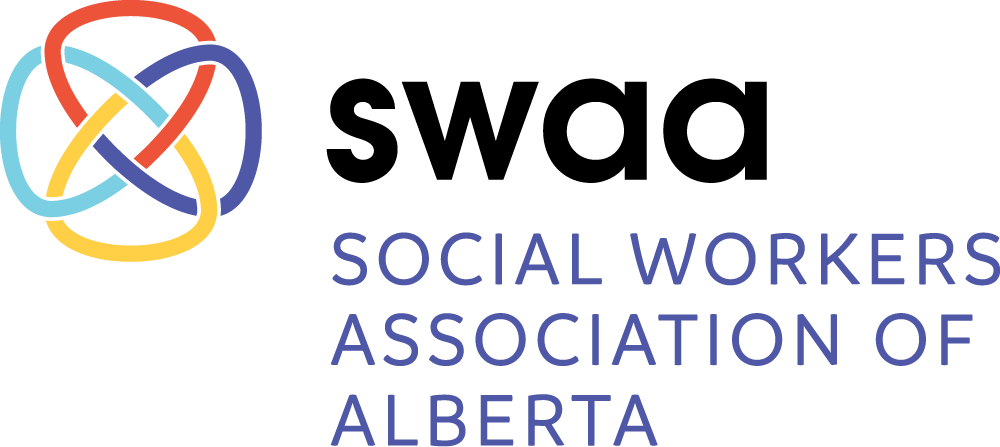Oct 10 Work Mental Health Day:
Mental health in humanitarian emergencies
Acknowledging Crises, Centring Access
World Mental Health Day, observed each year on October 10, is a global call to raise awareness, dismantle stigma, and advocate for equitable and accessible mental health care. The 2025 theme, “Mental Health in Humanitarian Emergencies,” underscores the profound emotional and psychological toll that crises, from conflict and climate disasters to displacement and systemic inequities, have on individuals and communities. It also urges governments and health systems to ensure that mental health is integrated into emergency response, not treated as an afterthought.
This theme resonates deeply in Alberta. While we may not face the scale of international displacement or armed conflict, we are not untouched by crisis. Wildfires, floods, pandemics, the opioid crisis, and the long-term impacts of colonial and systemic violence have all contributed to a mental health landscape marked by deep need and uneven access. Alberta’s communities, particularly Indigenous, rural, racialized, and low-income populations, face some of the sharpest barriers to timely, culturally safe, and trauma-informed mental health services.
Why This Day Matters
Mental health is a fundamental human right and a public health necessity. Yet, in Alberta, access to appropriate and affordable mental health care remains among the most pressing concerns raised by both service users and professionals. Despite a growing awareness of mental health as a critical issue, systemic gaps persist across regions, identities, and income levels. For those living outside major urban centres, services are often scarce or unavailable altogether. For Indigenous communities, the legacy of colonization, underfunding, and jurisdictional confusion continues to result in inconsistent and culturally unsafe care. For racialized and newcomer communities, language barriers and the lack of culturally competent providers can make services inaccessible even when they exist.
The mental health system in Alberta is increasingly strained. Wait times for publicly funded counselling and psychiatric services can range from weeks to over a year. For many, the only option is private therapy, which remains out of reach for low- and moderate-income individuals. Emergency rooms, shelters, and law enforcement are left to fill the gaps, often without adequate training or resources. For youth, the elderly, and those navigating substance use or trauma, the fragmentation of services can lead to worsening conditions, crisis escalation, and preventable loss.
Recognizing the Role and Concerns of Social Workers
In the face of these challenges, social workers across Alberta have continued to provide essential mental health and psychosocial support, both in times of crisis and throughout long-term recovery. Working in schools, hospitals, shelters, clinics, corrections, child welfare, and community-based settings, social workers bring a holistic, client-centred approach that integrates mental wellness with social determinants of health such as housing, income, safety, and cultural connection.
However, social workers are not immune to the systemic limitations of the mental health care system. One of the most pressing concerns within the profession is the chronic lack of accessible services to which clients can be referred. Time and again, social workers report the frustration and ethical tension of having to support individuals in crisis without the assurance that follow-up services, trauma care, or culturally appropriate supports will be available in time. This is especially pronounced in rural and remote communities, where social workers are often the only available mental health professionals, and where their ability to support clients is limited by geography, underfunding, and policy constraints.
Social workers themselves are impacted by these conditions. High caseloads, administrative burden, vicarious trauma, and insufficient workplace supports contribute to burnout and staff turnover. The profession continues to advocate for a system that values community-based, preventative care as much as acute intervention. There is a growing call within the field for governments to increase funding for public mental health services, recognize the unique role of social work in mental health delivery, and invest in services that reflect the diversity and cultural realities of Alberta’s population.
From Recognition to Access
Mental Health Day must go beyond symbolic acknowledgment. This means committing to tangible policy and funding reforms that ensure timely, affordable, and appropriate mental health services for all. This includes expanding community-based care, reducing reliance on emergency departments, and integrating mental health into every aspect of social services, education, and primary care. It means investing in Indigenous-led healing initiatives, supporting culturally competent providers, and ensuring that no one is turned away because of where they live, their income level, their race or ethnicity, their gender identity or expression, their status, or any other social or structural barrier.
Access is not only a clinical issue; it is a matter of justice. When individuals cannot access the care they need, the consequences ripple across families, schools, workplaces, and entire communities. A just and compassionate mental health system is one that meets people where they are; at the intersections of their identities and experiences, not despite them, but because of them.
A Call to Ethical Action
Social workers, grounded in values of dignity, social justice, and advocacy, have long called for the transformation of Alberta’s mental health landscape. Their work, often invisible but deeply impactful, reminds us that healing happens in relationships, in communities, and in systems that are responsive and well-resourced. On this World Mental Health Day, we honour their commitment and echo their call for a mental health system that truly works for everyone.
This is a time to move from awareness to accountability, to recognize that access to mental health care is not a privilege, but a right. As Albertans, we are called to advocate, to invest, and to care, not just in times of crisis, but in all the days that follow.
Evetta Solomon
Resources
